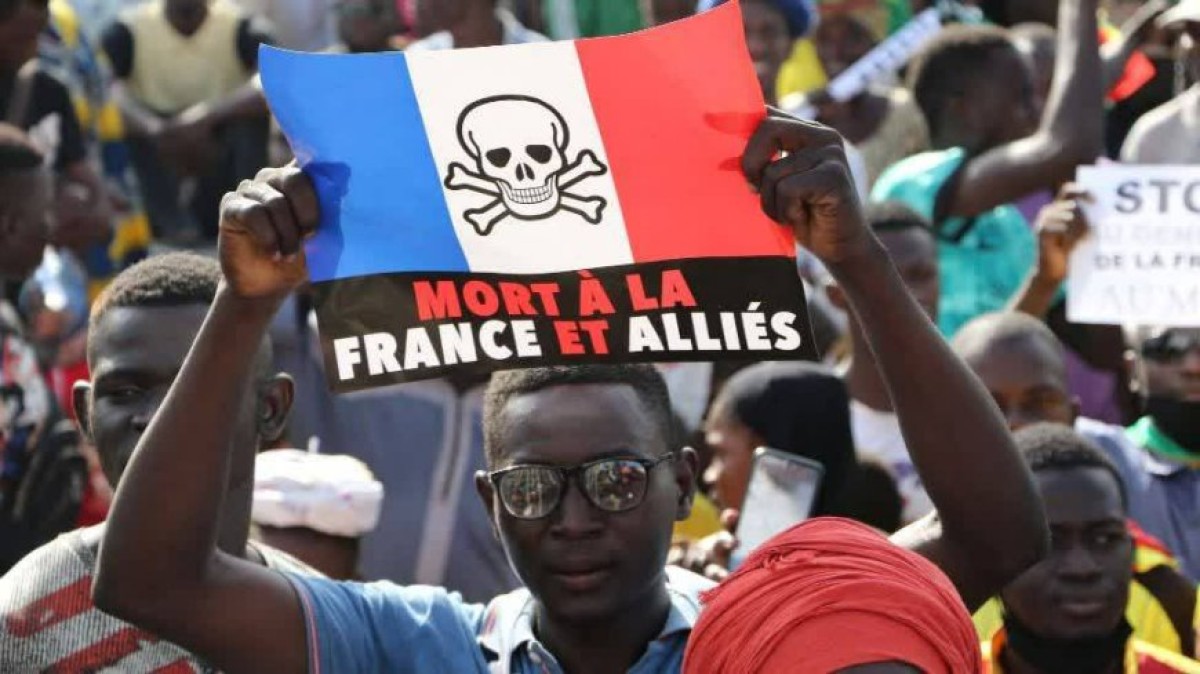 245
245
By: F. Najafi
Throughout history, Africa has drawn the attention of global powers due to its abundant and varied mineral resources, burgeoning youth population, and cost-effective labour force. In Western Africa, for instance, trans-regional actors hold a prominent position, sometimes even overshadowing the influence of regional actors.
For decades, Africa has been plagued by sociopolitical crises such as lack of security, weak central governments, economic poverty, and underdevelopment. These issues can be traced back to the dark legacy of European colonialism, which has had a lasting impact on the region. The deep-seated ethnic inequalities, recurrent armed conflicts, and tragic loss of life among the underprivileged communities across Africa are rooted in its colonial past and the lingering issues that have yet to be resolved.
Regarding colonialism in Africa, the name France immediately comes to mind. When discussing the topic of colonialism in Africa, France is a name that inevitably arises. The troubling history of human rights abuses by France in various regions, particularly Africa, cannot be ignored. Over the course of the past five centuries, dating back to 1524 AD, France has exerted its influence over no fewer than 20 African nations, primarily in the northern and western regions of the continent. This pattern of colonisation has been a longstanding one, with France occupying as much as 35 percent of the African continent over a period of 300 years, during which it is estimated that over two million people have been tragically massacred.
It is a widely held belief that France has relinquished its colonial presence in Africa; however, recent developments suggest that economic interests have been a driving force behind Élysée's renewed colonial pursuits in the region. In fact, a report published a few years ago revealed that France reaps a staggering 85% of the annual income generated across Africa. Also, it has been reported that the Central Bank of France is collecting revenue from African nations under the pretext of financing their development, military, and political expenses. This has raised concerns among some observers, who believe that such practises could have detrimental implications for the economic and political stability of the region. It's worth noting that in the event of financial distress, African nations are only entitled to receive a mere 20% of the funds they previously provided to the French Central Bank. The plundering of African resources and mines, as well as the imposition of franc currency in the African nations, serves as a testament to France's multifaceted economic pursuits in Africa.
France's calculated approach to sowing instability has emerged as a pivotal instrument in consolidating its sway in Africa, particularly in the Sahel area. Terrorist organisations such as ISIS, Boko Haram, and Al-Qaeda affiliates have stepped up their activities in the Sahel region, causing rising security concerns. In response, French troops have been deployed in the region for the past ten years.
The French government's deployment in West African countries is allegedly aimed at establishing order and security while also countering the threat posed by al-Qaeda. However, it is evident that the primary objective of Paris is to safeguard its interests in the region. Despite the ongoing French propaganda since 2013, Paris' efforts to address terrorist organisations in West Africa have been largely ineffective. The French government's actions in West Africa have been criticised for exacerbating tensions between Muslim and Christian communities, ultimately leading to increased insecurity.
According to Nigerian activist Isufo Ahmed, in an interview with the Sputnik news agency, Western nations, particularly France, are responsible for the security crises that many African countries are facing. According to the Africa Centre for Strategic Studies (ISSAT), Western intervention in Africa has led to a 70 percent increase in terrorist group-related violence in Sahel nations. Recently, the Prime Minister of Mali made a shocking revelation, arguing that France had provided training to terrorist organisations in the West African region.
Furthermore, France and its allies have contributed to political instability by backing military coup d'états and armed rebellions in Niger, Guinea, Libya, Mali, and Burkina Faso, among other African nations. Large protests have broken out all throughout Africa as a consequence of France's continuing influence there and the disastrous circumstances that have arisen as a result.
The historical context of colonialism has had a profound impact on African nations, leading to heightened awareness among their people. This has resulted in a new generation of leaders who are no longer willing to accept the dominance of Western powers such as France and are instead pursuing policies that align with their nations' interests. Today, African nations have been calling for the immediate end of France's military involvement in the region.
Comment
Post a comment for this article